Scottish Ambulance Service workers confirm winter strike dates
- Published
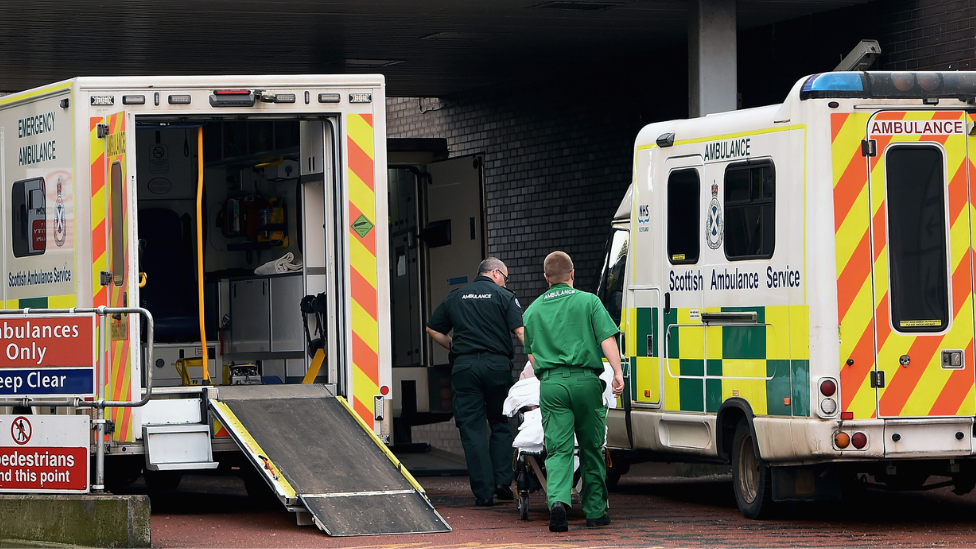
Ambulance workers have backed industrial action
Scottish Ambulance Service workers will stage a 26-hour strike later this month over pay.
GMB Scotland confirmed its members will take action from 06:00 on 28 November to 07:59 the following day.
The union said urgent meetings were being sought with management to ensure appropriate staffing levels for critical care.
On Friday Unite announced around 1,500 SAS staff, including paramedics, will take industrial action on 25 November.
Health Secretary Humza Yousaf said he was "disappointed" by the moves.
Royal College of Nursing and health workers in two other unions have also voted for a combination of strike and industrial action over the latest Scottish government pay offer.
It is for a flat rate of £2,205 per person backdated to April.
Mr Yousaf previously described the deal as "the largest of its kind since devolution".
And ministers have warned there is no more money to fund public sector pay rises.
Unite said all of its Scottish Ambulance Service workers - including advanced practitioners, planners and administrative workers - would take "continuous action short of strike" from 00.01 on 25 November.
This is likely to take the form of measures such as work-to-rule and an overtime ban.
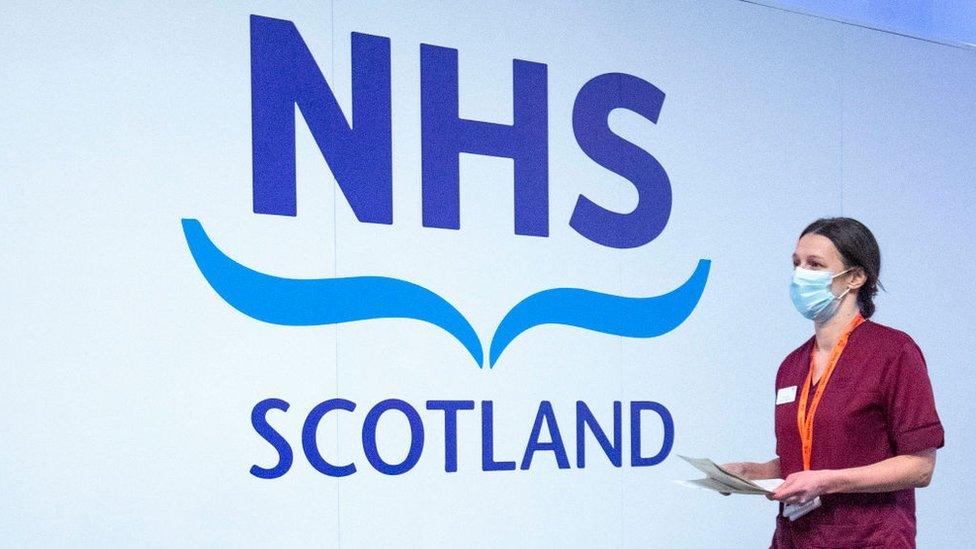
GMB announced its dates on Saturday after 89% of its SAS members voted for strikes earlier this month.
It is the first major strike to be confirmed across the UK in the current wave of disputes affecting the NHS.
And if it goes ahead it will be the first to affect the ambulance service since 1990.
GMB Scotland organiser Karen Leonard said: "Staff in the Scottish Ambulance Service have worked throughout the depths of the pandemic on the frontline of our public services, all the while dealing with an understaffing crisis and now a cost of living crisis this winter.
"These strikes are a direct response to the Scottish government who have failed to give key, frontline workers the pay rise that they deserve and who have overseen years of managed decline in the health services that so many rely on."
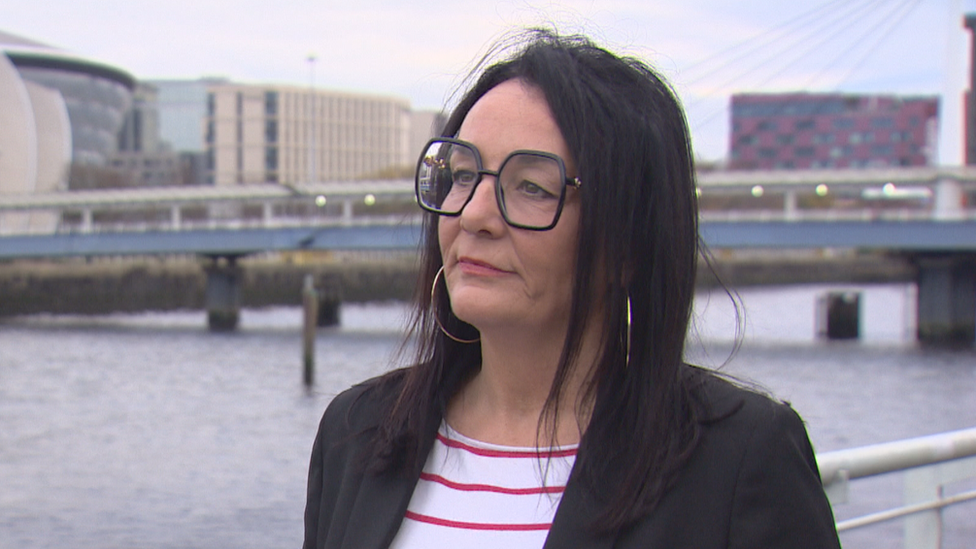
Karen Leonard of the GMB said workers have suffered years of real-terms pay cuts
Ms Leonard said staff were expected to do "more for less" as the current pay offer was below inflation and the workforce were "expected to fill more and more gaps in service provision."
She added: "Without a significantly improved offer, strike action is inevitable."
Ms Leonard said some members were using foodbanks and questioning whether they can afford to fill their petrol tanks.
Unions have called for an enhanced deal that reflects the pressures facing households due to the cost of living crisis, which has been caused by rising energy bills and soaring food prices.
'Catastrophic winter'
Scottish Conservative health spokesman Dr Sandesh Gulhane warned the NHS was facing a "catastrophic winter".
He added: "The health secretary has already shamefully lost the trust of our nurses, now ambulance workers feel they have no choice but to strike too.
"Our hardworking NHS staff have been pushed to the brink by years of SNP mismanagement, which has led to some of the worst working conditions in living memory.
"The SNP government must now urgently work to avert these dangerous strikes and set out contingency plans in order to protect lives, if they fail to do so. "
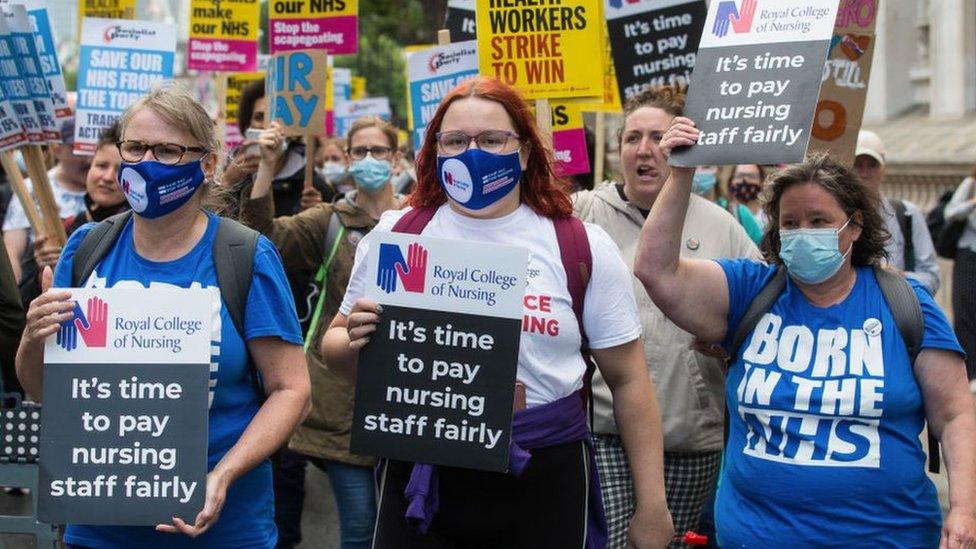
Members of the Royal College of Nursing have also rejected the Scottish government's revised pay offer
Scottish Labour health spokeswoman Jackie Baillie said beleaguered NHS workers had been left with "no other option".
She added: "The problems that have been building for years are now at crisis point, but Humza Yousaf is just not listening.
"It's not too late for the SNP to prevent these strikes by getting round the negotiating table and delivering a fair pay deal.
"We need to start contingency planning now to avoid disaster, and the SNP must consider calling in the army - but that is no substitute for trained paramedics, who need to be properly valued and fairly paid."
'Detailed contingency plans'
Mr Yousaf said he was committed to avoiding strikes.
He added: "Pay negotiations take place collectively through the Scottish Terms and Conditions Committee and it is right and proper that they continue to do so.
"I have contacted trade unions this week to reaffirm my commitment to ongoing discussions and dialogue.
"The safety of patients is our top priority and while we will do everything possible to avoid strike action we are working with boards to put detailed contingency plans in place."
Finance Secretary John Swinney previously said that although cash had been moved around in the health budget to give NHS staff a better offer, further pay uplifts would mean cuts elsewhere.
Mr Swinney announced £615m of spending cuts in his emergency budget review. It came on top of £560m worth cuts to public services in September.
Last week nurses belonging to the Royal College of Nursing (RCN) voted to strike for the first time in the union's 106-year history.
The RCN said every service in Scotland had supported industrial action, and called on ministers to return to the negotiating table.
Action is expected before the end of the year.
Members of the Chartered Society of Physiotherapy have also backed strike action.
And earlier this month about 2,500 workers in the Unite union voted for industrial action.
But Unison, Scotland's largest health union, has suspended its strike ballot of NHS staff and is consulting its members on a revised pay offer until 14 November.
Meanwhile, teachers in Scotland will stage a 24-hour walkout on 24 November after voting overwhelmingly to strike in a dispute over pay.
- Published11 November 2022
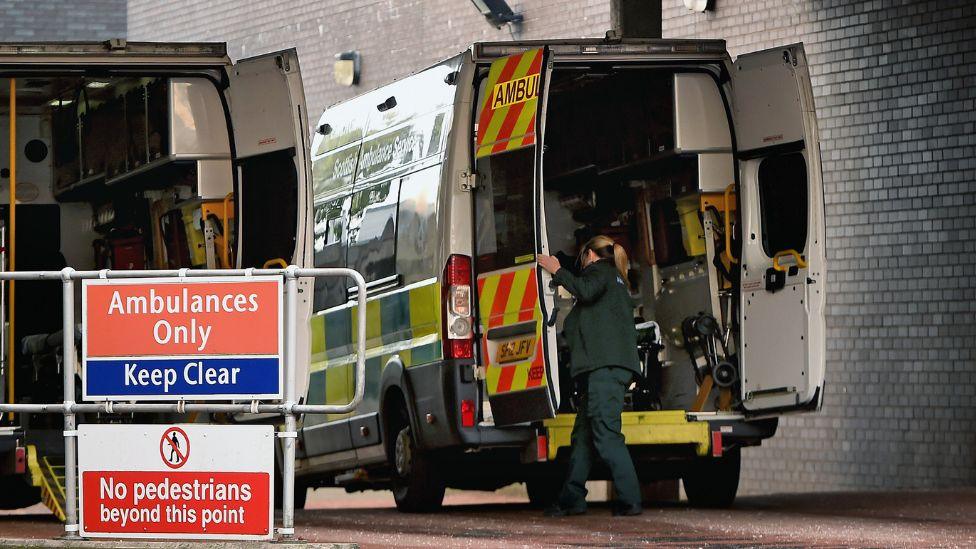
- Published1 November 2022
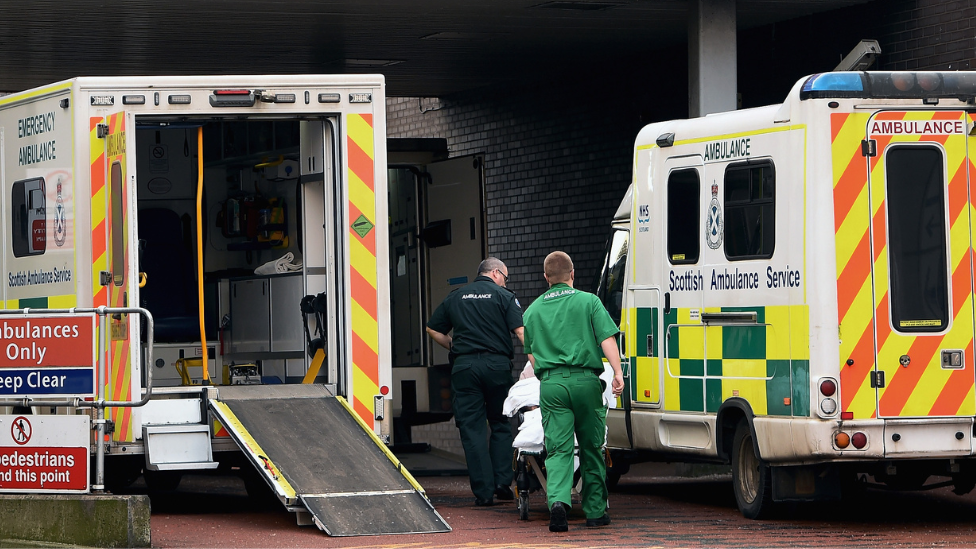
- Published3 November 2022
